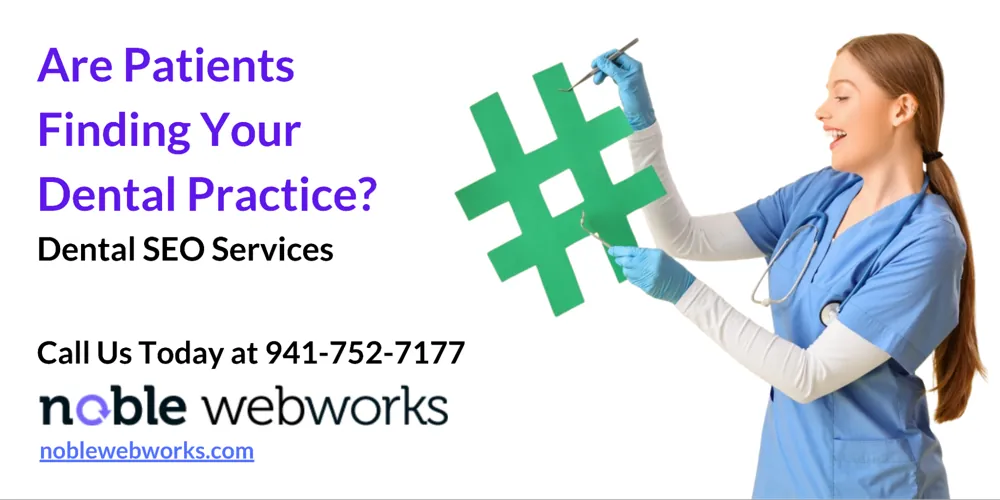
Not long ago, we worked with a dental clinic in Bradenton that had done everything right—on the surface. Their site had clean design, well-written content, and separate landing pages for each core service. But their traffic numbers weren’t budging, and their local rankings hovered on page two or three for even basic searches like “teeth cleaning near me.” As we dug into the structure of their site, the issue became clear: the content was missing a strategic keyword foundation. The service pages weren’t targeting the right phrases, and in some cases, weren’t targeting any at all.
This is a challenge we see often with dental marketers and clinic teams trying to handle SEO internally. They know they need keywords, and they may even be familiar with popular terms like “dentist near me” or “dental implants Sarasota,” but they’re unsure where and how to integrate those keywords on each page. What happens next is either overstuffed content that feels robotic, or under-optimized pages that never show up in search.
When done correctly, integrating dentist SEO keywords into service pages improves visibility, attracts qualified traffic, and helps Google understand exactly what your page is offering and to whom. According to a 2023 Semrush study, websites that optimize page content around relevant search intent and keyword placement see up to 70% higher visibility in organic rankings. That’s the difference between sitting on page three or showing up in the local pack for the exact services you provide.
Why Service Pages Are the Core of Your Dental SEO
Service pages aren’t just informative—they’re conversion-focused. When someone is searching for “Invisalign Sarasota” or “emergency tooth extraction near me,” they’re not looking for a general overview of dentistry. They’re looking for a page that directly matches their intent. This is why each service you offer needs a dedicated, optimized page that uses keywords naturally and effectively to signal relevance to both users and search engines.
Think of each service page as a miniature homepage for that specific treatment. If it’s about veneers, the page should clearly show up for searches related to veneers in your location. But that only happens when the keyword strategy is aligned with what your patients are searching for and how Google interprets your content. The goal isn’t to cram as many keywords into a page as possible—it’s to write content that is both helpful and strategically optimized.
How Keyword Placement Impacts Ranking
The question isn’t just what keywords to use—it’s where to put them. Google’s algorithm looks at certain on-page elements more closely than others to determine what a page is about. Your target keyword should appear in high-value areas like the page title, meta description, H1 tag, and early in the first paragraph of content. From there, it should be used contextually throughout the page in a way that feels natural, not forced.
Let’s say you’re building a page for “dental implants in Sarasota.” Your title tag might read, “Dental Implants in Sarasota | Restore Your Smile,” and your H1 could echo that message with a variation like, “Expert Dental Implant Services in Sarasota.” Early on in the body content, you might explain that your practice offers dental implants to help patients in Sarasota and surrounding areas restore missing teeth with long-term solutions. These phrases reinforce the page’s topic while anchoring it to a specific location and service.
You don’t need to repeat the exact phrase in every paragraph. In fact, doing so can backfire. Google recognizes synonyms and variations, so using related language like “implant dentistry,” “tooth replacement options,” or “permanent dental solutions” adds semantic richness without sounding robotic. This approach satisfies both the algorithm and your human readers, which is ultimately what strong SEO is all about.

Optimizing Supporting Elements Without Keyword Stuffing
One of the most common mistakes we see in dental SEO is keyword stuffing—repeating the same phrase over and over in a way that disrupts the flow of content. Google has become increasingly good at identifying this tactic, and instead of rewarding it, the algorithm penalizes it by pushing the page down in search rankings.
To avoid this, focus on strategic repetition rather than frequency. If your service page is about “teeth whitening in Bradenton,” use that exact phrase in the meta description, page title, one or two headings, and once or twice within the body content. Then, supplement it with natural variations like “professional teeth whitening,” “cosmetic smile enhancement,” or “brighten your smile in Bradenton.” These related terms add depth to your content without sounding repetitive, and they also help your page rank for additional long-tail queries.
Images and media assets offer another overlooked opportunity for keyword optimization. Your alt text should describe the image accurately but can include relevant keywords where appropriate. For example, an image of a patient receiving whitening treatment could use alt text like “professional teeth whitening treatment in Bradenton dental office.” Just like body text, this needs to be written for clarity first—not stuffed with keywords—but when used appropriately, it strengthens the overall SEO signal of your page.
Creating Keyword-Rich FAQs to Support Ranking
Including a Frequently Asked Questions section on service pages is one of the smartest ways to add both value and SEO strength without making your content feel bloated. Patients often have very specific, practical questions about procedures, recovery, cost, or insurance—and these questions often align with the types of queries they’re typing into Google.
By answering those questions directly on your page, using natural language and variations of your target keywords, you capture more long-tail traffic and improve topical relevance. For example, on a dental implants page, an FAQ might include a question like “How long do dental implants last?” or “Are dental implants covered by insurance in Florida?” These questions can include soft keyword phrases like “Bradenton implant dentist” or “tooth replacement options in Sarasota” as part of the answer without sounding forced.
This kind of content also improves engagement metrics like time on page and bounce rate, which indirectly influence your rankings. The more useful and complete your content is, the more likely patients are to stay on your site and take action—whether that’s scheduling a consultation or calling your office.
How Many Keywords Should You Use Per Page?
There’s no magic number, but a good rule of thumb is to focus on one primary keyword per service page, supported by a handful of natural variations and related terms. Trying to optimize for five or six different services on one page dilutes your message and makes it harder for Google to determine what the page is really about. A focused, single-keyword strategy supported by relevant context will always perform better than a scattershot approach.
We typically recommend that dental practices create one page per core service, using that page to fully explore the benefits, process, FAQs, and trust-building elements for that service. This approach allows for deeper content, more natural keyword integration, and a better experience for both users and search engines.
Frequently Asked Questions About Dentist SEO Keywords
How many keywords should I use on a page?
Focus on one main keyword per service page, supported by several variations and semantically related terms. Instead of aiming for a number, prioritize clarity, relevance, and natural use within the content.
Where should I place keywords for SEO?
Place your primary keyword in your title tag, H1 tag, meta description, image alt text (when relevant), and in the first 100 words of your content. From there, use it naturally throughout the page without forcing repetition.
How do I avoid keyword stuffing on my dental site?
Avoid repeating the same keyword too frequently in a way that feels unnatural. Instead, use synonyms, related phrases, and contextual variations that reinforce the topic while keeping the content readable and helpful.
Can I use the same keyword on multiple pages?
It’s best to avoid targeting the same exact keyword on more than one page. Doing so can create internal competition and confuse search engines. Assign each keyword to a unique page focused on a single topic or service.
Are FAQs good for dental SEO?
Yes, FAQs are excellent for SEO. They help answer common patient questions using keyword-rich language & increase your chances of appearing in featured snippets or voice search results. They also improve user experience by addressing practical concerns directly.
Build Smarter Service Pages with the Right SEO Strategy
At the end of the day, your service pages are more than just a place to describe procedures—they’re your opportunity to rank, attract, and convert. Smart keyword integration isn’t about stuffing as many dental terms as possible into every paragraph. It’s about understanding what your patients are searching for, matching that intent with specific keywords, and placing those keywords where they’ll have the most impact.
At Noble Webworks, we specialize in helping dental practices take control of their SEO by aligning keyword strategies with business goals. We build search-optimized service pages that attract real patients, rank in local markets, and stand out in competitive spaces. If your current pages aren’t bringing in leads—or worse, if they’re not ranking at all—we’re here to help turn that around.
Let’s optimize your content with purpose, clarity, and strategy. Reach out today, and let’s create service pages that work as hard as you do.













